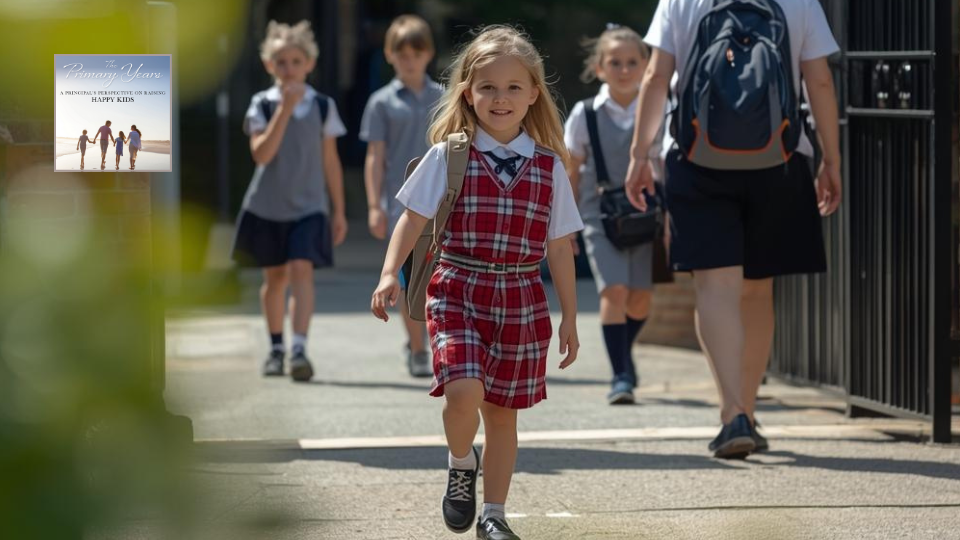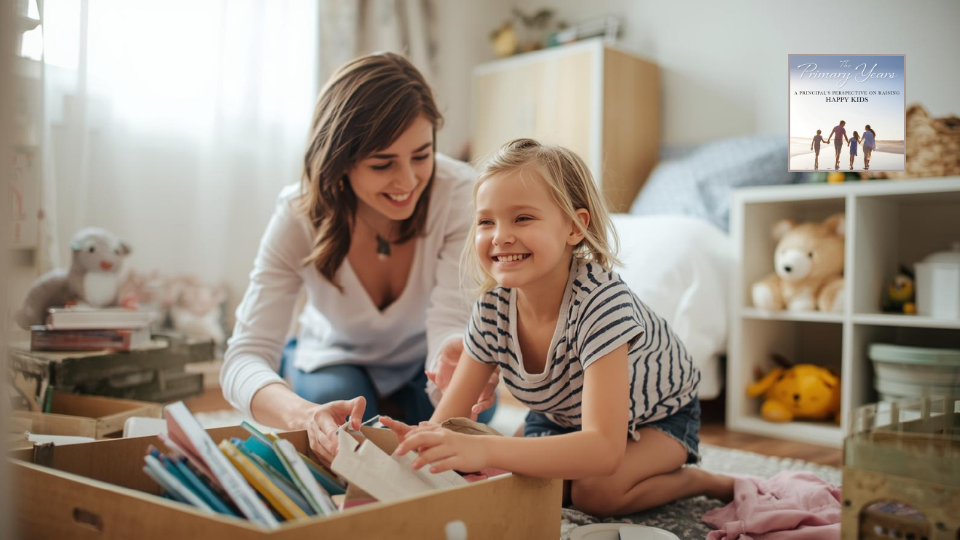
How to be present straight after school each day?
That immediate after-school window is one of the most important and trickiest times to connect with your child. Here are gentle, practical ways to transform the after-school rush into a space of safety and reconnection.

A few thoughts to keep in mind late January
The new school term is here. Are you and your child ready to embrace the change? Moving from holiday mode to school routines is more than just packing bags, it's about nurturing growth in every way: social, emotional, intellectual, and physical.

As holidays end what to think about
As the school holidays begin to wind down, a familiar mix of emotions emerges with lingering freedom alongside the gentle pull of the new school year. In this blog, Gail Smith offers gentle, actionable tips to help your child (and you!) warm up to the coming term, focusing on connection, comfort, and taking it one small step at a time.

Understanding Your Child’s Weekly Challenges at School And How You Can Help
As a parent, understanding what your child faces at school can help you provide meaningful support at home. Here’s a guide to some common challenges children encounter and simple actionable ways to help them thrive.

How to Support Your Child’s Mental Health Through School Without Over Complicating It
Supporting your child’s well-being doesn’t have to mean long lectures or expensive therapies. Gail Smith shares simple yet effective ways that you can apply to make a real difference in supporting your child's mental health.

How to Help Your Child Thrive at School Without the Stress!
School life is full of twists, turns, and loop-the-loops. As a parent, you’re the safety harness, keeping your child steady through the ups and downs. But how can you support them without adding to the pressure? Here’s the quick-start guide to helping your child navigate school life with confidence and ease.

Five simple but practical ideas for parents to find a balance between a busy life and dealing with school matters.
Balancing work, life, and your child’s school commitments can feel overwhelming, but it doesn’t have to be. Gail Smith shares five simple yet practical tips to help busy parents stay engaged with their child’s education while managing their own demanding schedules. While perfection may be out of reach, these strategies can help you find a better, more manageable balance.

Five sound reasons why parents should stay in touch with their child’s school throughout the year.
Building relationships with your child’s school, especially their teachers creates a strong foundation for a successful year. Gail Smith shares five key reasons why staying engaged throughout the year benefits both students and parents.

5 TIPS TO REDUCE ANXIETY IN YOUR CHILD WHEN STARTING SCHOOL
Starting a new school year can be a big adjustment, especially for kids feeling a little nervous. As a parent, you can help ease their worries and boost their confidence with simple strategies. A smooth start sets the tone for a great year ahead! Gail Smith shows you how you can support your child through this transition.

Starting School in 2025
Ease your child's transition into a new school year by talking positively about the fun activities and friendships they'll enjoy, and practice morning routines to help them feel prepared. Offer lots of encouragement and remind them that you're there to support them every step of the way.

Five simple but powerful tips for parents to help their child start school on a positive note
With school reopening soon, take a moment to chat with your child about their holiday highlights and what they'll miss. This helps them transition from break to school. Ask them what they're excited about, whether it’s seeing friends or new activities. These simple conversations can set a positive tone for the new school year.

Encouraging your child to write well
Some children struggle with writing, finding it difficult to start and continue their stories. Parents can help by providing engaging activities that spark motivation. Gail Smith offers suggestions to show children the power of the written word. Read on to discover more on how to encourage your child's writing journey!

Why it is important to monitor the mental health of your child
In today's complex world, children face an overwhelming influx of information from social media and other sources. It's crucial to ensure their happiness and sense of security during the early years to build mental resilience. By being present, listening well, and working together to solve problems, parents can foster resilience and reassurance in their children. Gail Smith emphasizes the importance of monitoring and supporting your child's mental health.

The importance of your child attending school regularly
Ensuring your child is keen and interested in school is vital. When they feel it's important to attend, you can be reassured they are engaged with their school environment. Gail Smith shares five essential reasons why regular attendance is crucial for a well-adjusted child at school. Discover these insights to support your child's educational journey.

Let take a good look at why boredom can be a good thing
Discover the benefits of embracing boredom! Gail Smiths explains how encouraging children to slow down and enjoy moments of stillness can lead to new ideas and creativity. Let's create space for quiet reflection and see the magic it brings to their lives!

School is a magical place and children learn through many and varied mystical ways
Discover the magic of school beyond academics and schedules. It's a realm of enchantment, surprising lessons, and delightful moments. Explore with Gail Smith how to engage with your child's school experiences, encourage their passions, and embrace the wonder of everyday learning.

Be available to listen to your child at this early stage of the school year
When you listen well to your child you see your child more clearly. Explore the reasons for effective listening with Gail Smith, especially at this early stage of the school year.

Help your child have a great start to the school year
Every child will encounter a mix of excitement and anxiety at the start of a new school year. Gail Smith shares tips on actions you can take to ease the pressure for your child and let them know you are navigating this journey together.

Dealing with children's preschool jitters
Heading back to school is an adventure, but we know it can bring butterflies for some! Gail Smith has awesome tips to help your family smoothly glide into the new school year. Let's make it an exciting journey together!"

What really makes a great school
We all want the best for our child's education. Here are some suggestions on what makes a great school.